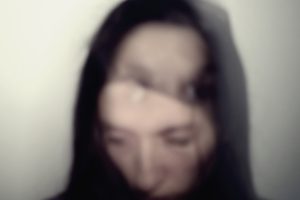 Residual schizophrenia is one of the five types of schizophrenia and is characterized by a long-term history of negative symptoms and very infrequent positive symptoms.
Residual schizophrenia is one of the five types of schizophrenia and is characterized by a long-term history of negative symptoms and very infrequent positive symptoms.
The term ‘positive symptoms’ is used to describe something that is believed to be real to the patient, but is actually false to everyone else. Positive symptoms are more commonly seen in the early stages of schizophrenia and can be provoked or triggered by stressful situations such as a breakup or illness diagnosis. Positive symptoms are also seen as “madness” by the general public. This is because these symptoms evoke fear or anxiety in other people and are often negatively portrayed in the media.
Advertisement
In order to be diagnosed with residual schizophrenia, a patient must experience positive symptoms at some point, but this could take years to develop.
Residual schizophrenia is considered the least severe type of schizophrenia, and patients can very well live a normal life. This type of schizophrenia may also have what is known as waxing and waning phases. During the waxing phase symptoms intensify, and during the waning phase they decrease, even disappear.
Causes of residual schizophrenia
Like with other types of schizophrenia, the exact cause of residual schizophrenia is unclear. Some studies have shown that brain dysfunction can contribute to the onset of schizophrenia, but why this dysfunction occurs is undetermined.
Environmental triggers have been speculated to contribute to the development of schizophrenia, too.
Furthermore, an imbalance of dopamine has also been found to contribute to schizophrenia. And serotonin, another neurotransmitter, has been found to play a role in the onset of schizophrenia.
The researchers have identified some risk factors which include genetics, viral infections, fetal malnutrition, stress during early life, childhood abuse or trauma, parental age of conception, and drug abuse.
Signs and symptoms of residual schizophrenia
Symptoms in residual schizophrenia are often seen to be less intense than symptoms in other subtypes of schizophrenia. Patients with residual schizophrenia experience less of the positive symptoms and more of the negative symptoms.
Advertisement
Negative symptoms subtract from a person’s life such as lack of happiness. The term refers to the absence of “normal” behavior and may be considered as something lacking.
Symptoms of residual schizophrenia include:
- Going one year without symptoms or with minimal symptoms: The patient must go one year with minimal symptoms in order to be diagnosed with residual schizophrenia. During this time, symptoms may be present, but may go unnoticed. Negative symptoms are unnoticed, and positive symptoms do not occur.
- Absence of dementia or other diseases and disorders: Patient must be cleared of any other neurological disease and other disorders must be ruled out.
- Negative symptoms: Flat affect, psychomotor slowing, inactivity, passivity, poor communication, and poor hygiene.
- Psychotic episode: Residual schizophrenia patients must experience at least one psychotic episode at some point. Types of psychotic episodes include delusions and hallucinations.
Although residual schizophrenia is the least severe type of schizophrenia, getting proper treatment is still important in order to live as normal of a life as possible.
